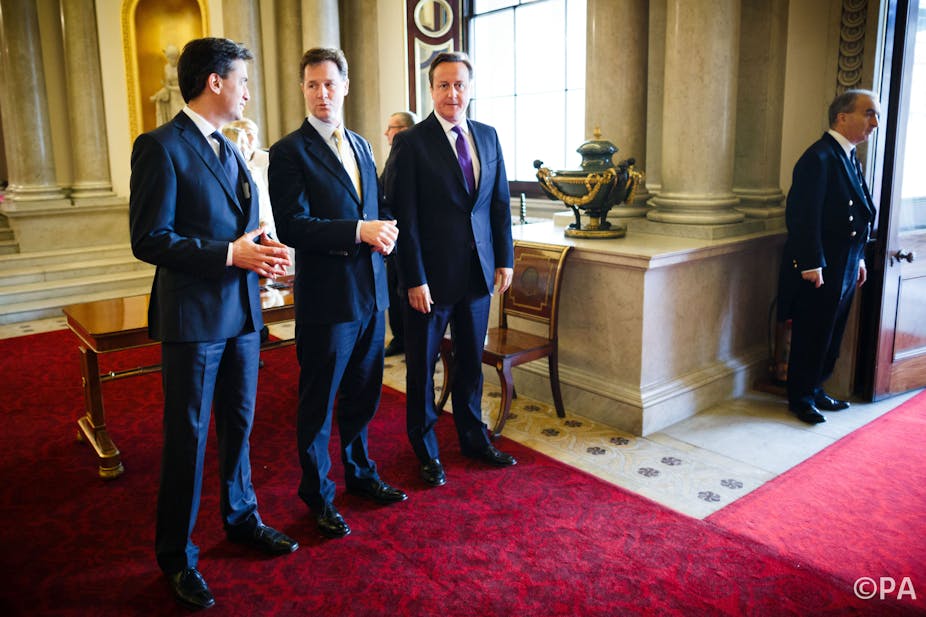As prime minister David Cameron works on the finishing touches of his much-awaited speech on Europe and immigration he is under considerable pressure from his backbenchers and some frontbenchers to signal that he is ready to campaign to leave the European Union. Earlier this week former cabinet minister Owen Paterson asked the prime minister to write a promise to invoke article 50 of the Lisbon Treaty in next year’s party manifesto, which would kick off a two-year process of withdrawal from the EU.
The implications of this demand are quite serious, as it rejects the prime minister’s current approach to Europe. Rather than wait for the negotiation of Britain’s relationship with the EU before advocating membership or withdrawal, the former cabinet minister wants to press the exit button now.
But the pressure does not come only from pesky backbenchers like Owen Paterson. Increasingly, the pressure comes from his colleagues in the cabinet who want the Cameron – and the party as whole – to take a firm stance on Britain’s membership of the EU. In particular they want Cameron to say that he will advocate “Brexit” in case his negotiation strategy fails and he does not obtain the reforms to achieve what Eurosceptics vaguely define as “restoring British sovereignty”.
So far the prime minister is vainly hoping to keep his options open. As a pragmatic Eurosceptic, Cameron has said already that he would support Britain’s membership of the EU if he obtains the reforms he wants. But he is so afraid of failing that no one in Europe nor in his party have any idea what these reforms would entail. The mystery is driving his party mad. On the other hand, European leaders are so fed up with his constant threats and ultimatums that they seem resigned to the idea Britain will leave the EU.
In his forthcoming speech on freedom of movement in the EU it is highly unlikely that the prime minister will make such a reckless promise as the one demanded by Paterson but he will surely try to placate the Eurosceptics in by shedding some light on his negotiating strategy. Given the fratricidal atmosphere about Europe, it is also likely that he will fail.
Euroscepticism spreads beyond Toryland
The shrillness of Tory debates about Europe suggests that Europhobia is a virus that only affects Toryland and Ukippers. It is also true that both Labour and the Liberal Democrats like to show their sensible pro-European credentials by promising not to hold a referendum on EU membership. But this grandstanding is misleading. Both Labour and the Lib Dems are getting nervous with the toxic Europhobic atmosphere that is quickly spreading from Westminster to the rest of the country and have started to mutter reserves about the EU by using language that is rich on Eurosceptic iconography.
In recent days, Labour has upped the ante on Europe by promising to negotiate the right to restrict access to British benefits and tax credits to EU migrants with European partners. To a certain extent these proposals are understandable – Labour is fighting for every vote it can get – but by implying that EU migrants are above all a burden to Britain (though their contributions to the British treasury are very welcome), Labour falls in the ugly politics of UKIP and Tory Europhobia.
Likewise, the Liberal Democrats, known as the most pro-European party sitting in Westminster, haven’t been immune to mild Eurosceptic mutterings. While several MPs worry out loud about how the party’s Europhilia may damage their electoral prospects, the leader Nick Clegg has decided to dress his reformist zeal in Eurosceptic clothes.
Last summer and more recently in an article in the Financial Times, Clegg called for changes to EU rules on freedom of movement. He claimed that freedom of movement “was never intended as an automatic right to claim benefits”, but as a right to work. He argued as well that member states should “retain the right to put on the brakes if people begin arriving in numbers too big for our society to absorb successfully”.
And in case anyone doubted the new zeal of the Liberal Democrats in defending Britain’s national interest from the interference of faceless Brussels’ bureaucrats, Clegg has been complaining about the old canards of “unnecessary meddling” from the EU and “ridiculous waste”. Nigel Farage or Bill Cash wouldn’t have put it better.
Thus far, UKIP and Tories have been blamed for driving Britain into international isolation, but by using negative stereotypes and punitive language to describe the EU and Europeans, Labour and the Liberal Democrats are helping the Europhobes to validate the narrative that will eventually drive Britain out of Europe.

